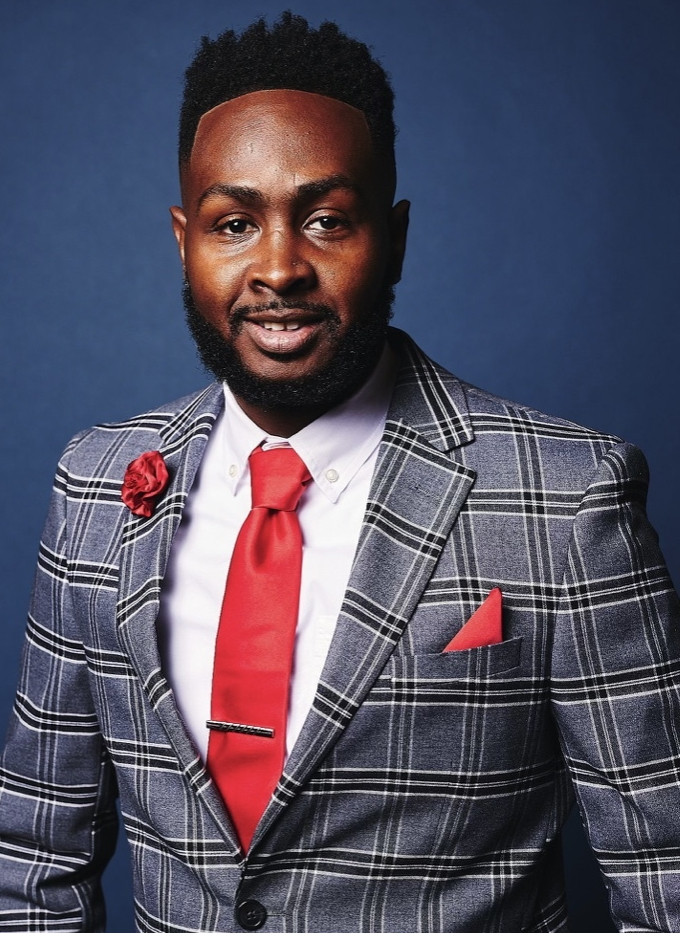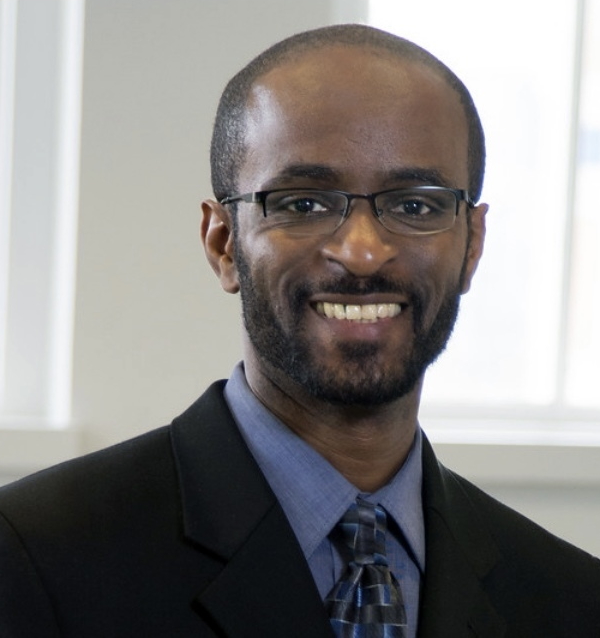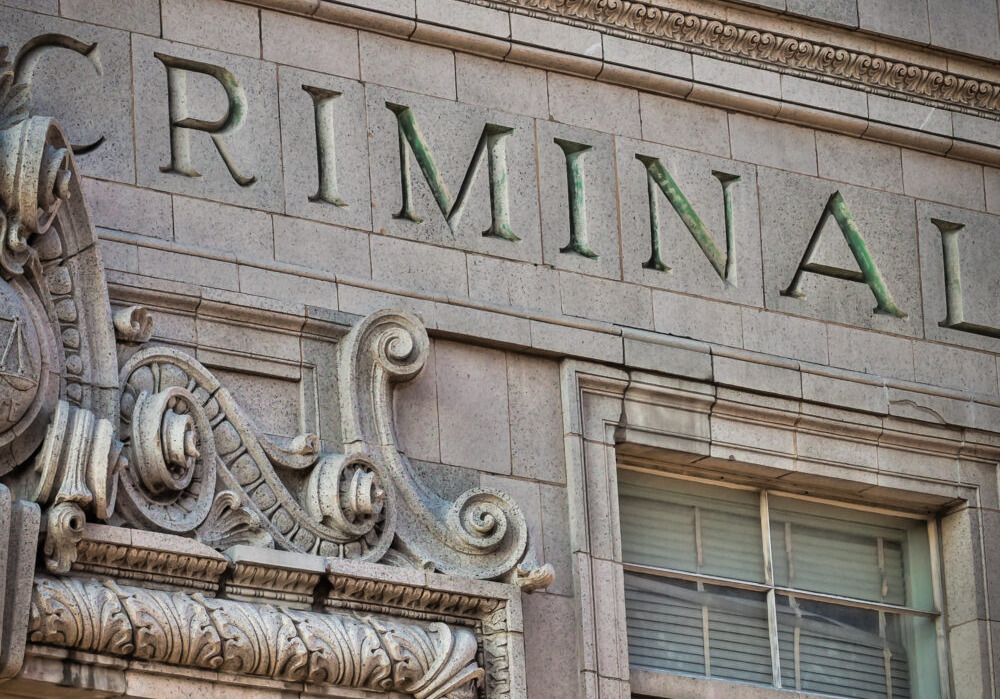Marquis McKenzie, the son of a chef and a corrections officer, was 15 years old on the day Florida prosecutors urged a judge to try him as an adult for armed robbery.

Courtesy of Marquis McKenzie
Florida justice activist and business owner Marquis McKenzie was incarcerated as a juvenile.
The judge carefully explained to the Orlando native, who’d stolen a cellphone and a wallet, that Florida’s so-called direct file law allowed an adolescent to be viewed as a grown-up in court. But, instead of a decade behind bars, the judge accepted a plea deal, remanding McKenize to two years at the Indian River Juvenile Correctional Facility and, after that incarceration, four years on probation.
“I am a model citizen, a good father and a good son,” said McKenzie, 31, a No Place for Children coalition volunteer and parent of three. “I am a poster child for what is possible when you give a young person a chance.”
Now the owner of a four-employee, residential and commercial cleaning business he started seven years ago, McKenzie said he’s fortunate to have turned his life around and earned a high school diploma while locked up in Florida, which the Southern Poverty Law Center ranks No. 1 among the 50 states in the number of youth tried as adults on felony charges. In 98% of cases where juveniles have been tried as adults, prosecutors had direct-filed those criminal charges; neither a judge nor grand jury reviewed or pre-approved those filings, according to the law center.
Over the past five years, 4,446 children have been tried as adults in Florida. State law allows prosecuting those as young as 14 as adults, said Delvin Davis, a regional analyst at the law center, one of the organizations advocating for every state to raise the age at which youth can be prosecuted as adults.
“We shouldn’t be treating children like adults because they are not,” Davis said. “And when they enter into the adult systems they come out abused and neglected.”
An overall decline in youth being tried as adults
Since 2007, 18 states have raised to 18 the age at which a person can be criminally charged as an adult, according to a 2021 report from The Sentencing Project. In a previous report, that organization concluded that 250,000 youth nationwide were being charged as adults annually in 2000. By 2019, that number was 53,000, an 80% drop.
A 2021 report by the National Council on State Legislatures listed Georgia, Texas and Wisconsin as the three states where 17-year-olds automatically are tried as adults. The same report cited Vermont as the first state to keep in juvenile court the cases of those aged 18 and younger. That same law would have raised the age of juvenile defendants to 19 this summer and to 20 in 2024; but, in January 2022, legislators paused that provision, citing what they said was a rise in gang violence.

Courtesy of The Sentencing Project
Amy Fettig, The Sentencing Project executive director.
“Raise-the-age has been one of the most successful campaigns to protect youth from the adult criminal justice system,” said Amy Fettig, The Sentencing Project’s executive director. “A part of our system of mass incarceration over the past fifty years has been to treat youth more harshly by charging and punishing them as adults.”
Fettig said raise-the-age campaigns push back against criminalizing young people.
McKenzie agreed.
“I had a happy childhood,” he said. “At some point, I made a wrong decision and it took me down a path which led to incarceration. But I should never have been in the adult system. No child deserves to be prosecuted as an adult. It is wrong. It is an injustice.”
The Florida arm of the American Civil Liberties Union, one of the 20 groups comprising No Place for A Child, estimates that 1,000 Florida youth have been charged annually as adults. Fifty-four percent of those cases involved nonviolent offenses, according to the ACLU.
Federal law requires that juveniles be separated from adults during pre-trial detention, which can lead to being kept in isolation for months, the ACLU has said. Youth held in adult facilities were 36 times more likely to commit suicide and are at a greater risk of sexual victimization, a National Juvenile Justice Network study found.
The Florida ACLU and No Child’s other member organizations had supported the proposed “Prosecuting Children as Adults” legislation in the Florida House, which, among other provisions, would have prohibited the “transfer of [a] child to adult court for criminal prosecution of indictable offense until child’s competency has been restored; [and] authorizes, rather than requires, [a] child who is found to have committed specified crimes to be sentenced according to certain provisions & child to be sentenced as adult if child is found to have committed an offense punishable by death or life imprisonment.”
The proposal died in the House’s Criminal Justice & Policy Safety Subcommittee last March.
“Florida continues this cruel practice that only serves to make it harder for at-risk youth to grow into successful adults,” said attorney Michelle Morton, the Florida ACLU’s research coordinator and policy counsel.
She continued, regarding what eventually is mandated in some cases: “Many of these kids are simply put on adult probation, which is nearly impossible for them to comply with while in school and does nothing to rehabilitate them. It’s time for state attorneys to stop fast-tracking children to the adult criminal legal system and start directing them toward rehabilitation and age-appropriate consequences.”
Blacks were largest group tried as adults

Courtesy of The Southern Poverty Law Center
Delvin Davis, Southern Poverty Law Center regional analyst.
By race, in 2020-21, 61% of juveniles transferred to Florida’s adult court were, like McKenzie, Black; Blacks comprised 46% of the 19,086 juveniles arrested statewide. Whites represented 37% and Latinos 16% of those transferred to adult courts.
Under guidelines still in effect in Florida, McKenzie, who is Black, could have been sentenced to life in prison, the Southern Poverty Law Center’s Davis said. If McKenzie had been charged as a juvenile, that would have expunged the felony robbery charge from his permanent record in the justice system. Charging him as an adult has kept the offense on his record.
As he monitors legislative proposals on this front, McKenzie also tracks trends. Direct-file cases against Florida youth declined in number to just under 800 in the 2020-21 fiscal year from roughly 12,000 in 2008-09. But the percentage of Florida juveniles who were tried as adults increased from 3.2% in 2019-20 to 3.7% in 2020-21, the Southern Poverty Law Center has concluded.
To help curb that trend and what he sees as unchecked power by prosecutors, McKenzie said he believes judges should review cases before they can be direct-filed.
Trying kids as kids saves dollars, advocates say
In addition to potentially curbing such harms as deaths by suicide and rape behind bars for juveniles tried as adults, keeping youths’ cases in juvenile courts also is more cost-effective, some advocates argue. A 2019 analysis by the Southern Poverty Law Center concluded that Florida’s Department of Corrections and Department of Juvenile Justice would save $3.6 million out of a $593 million annual juvenile justice budget if all the children were moved from the adult system to the state’s juvenile justice system.
But there’s more at stake than dollars and cents, reform advocates argue.
“Kids who come into contact with the criminal justice system are in crisis,” The Sentencing Project’s Fettig said. “They’ve been failed by adults before … Treating all kids like kids, ensuring that they stay in the youth system and have access to rehabilitation, resources and education gives them the second chance they need and deserve. To do otherwise just compounds tragedy upon tragedy.”
***
Ohio journalist Sonia Chopra’s byline has appeared in the Cincinnati Enquirer, Cosmopolitan, HuffPost, Rewire, Salon, Teen Vogue and The New York Times.




























